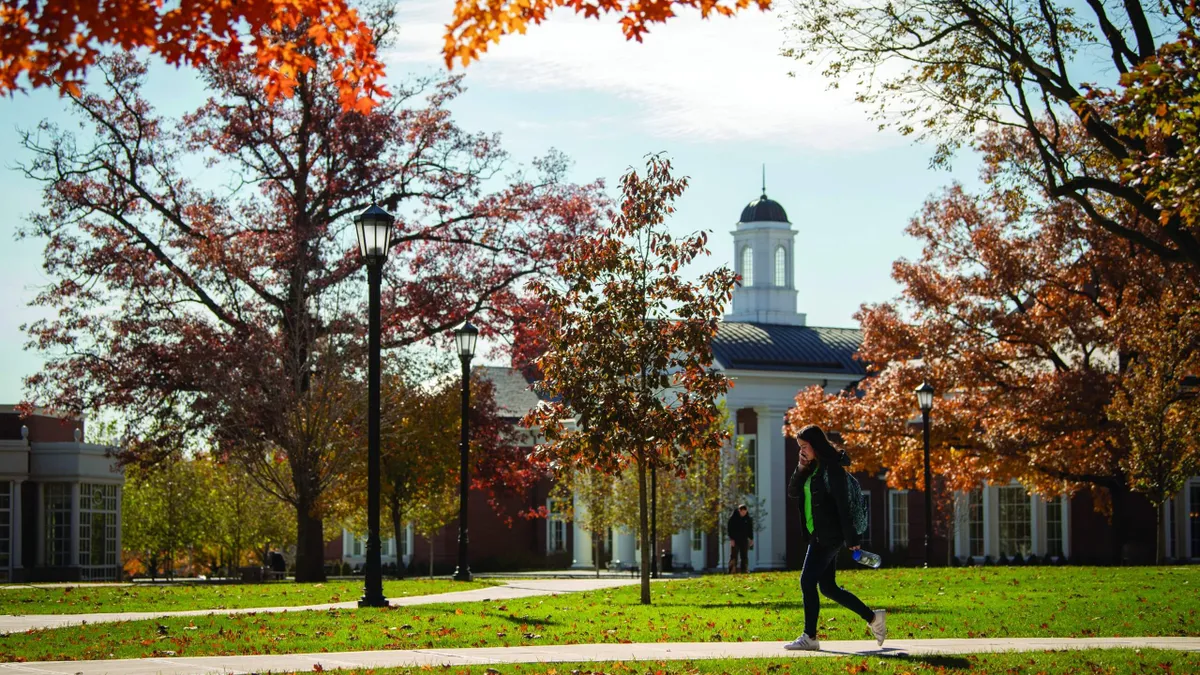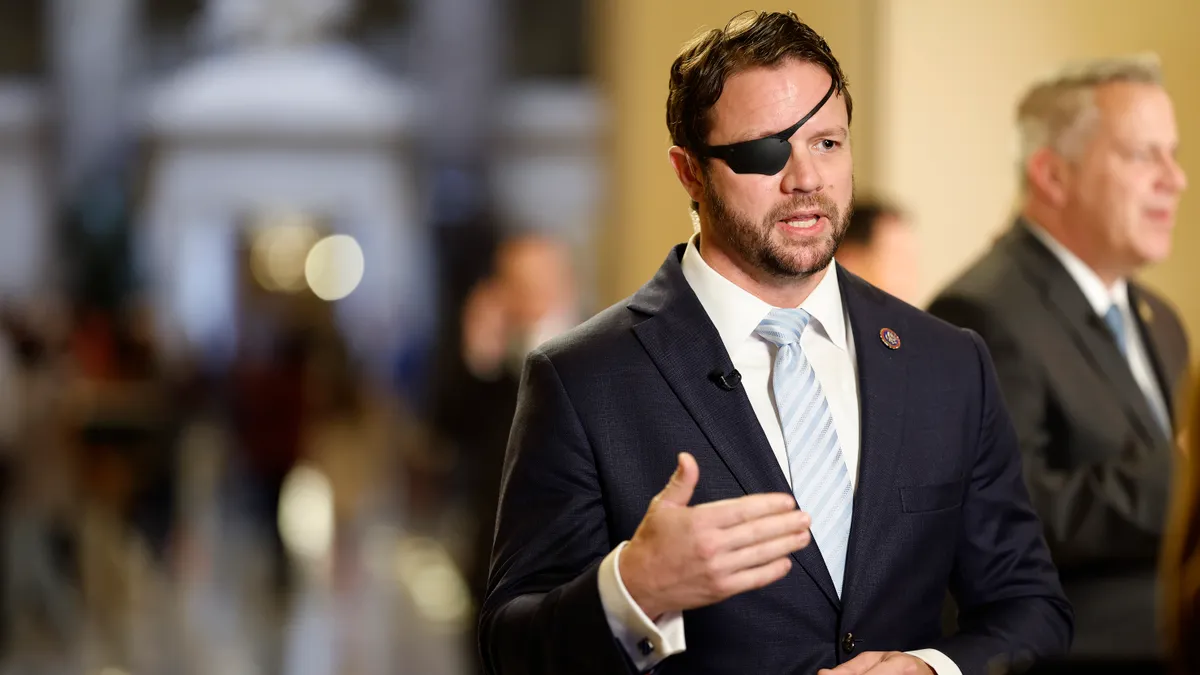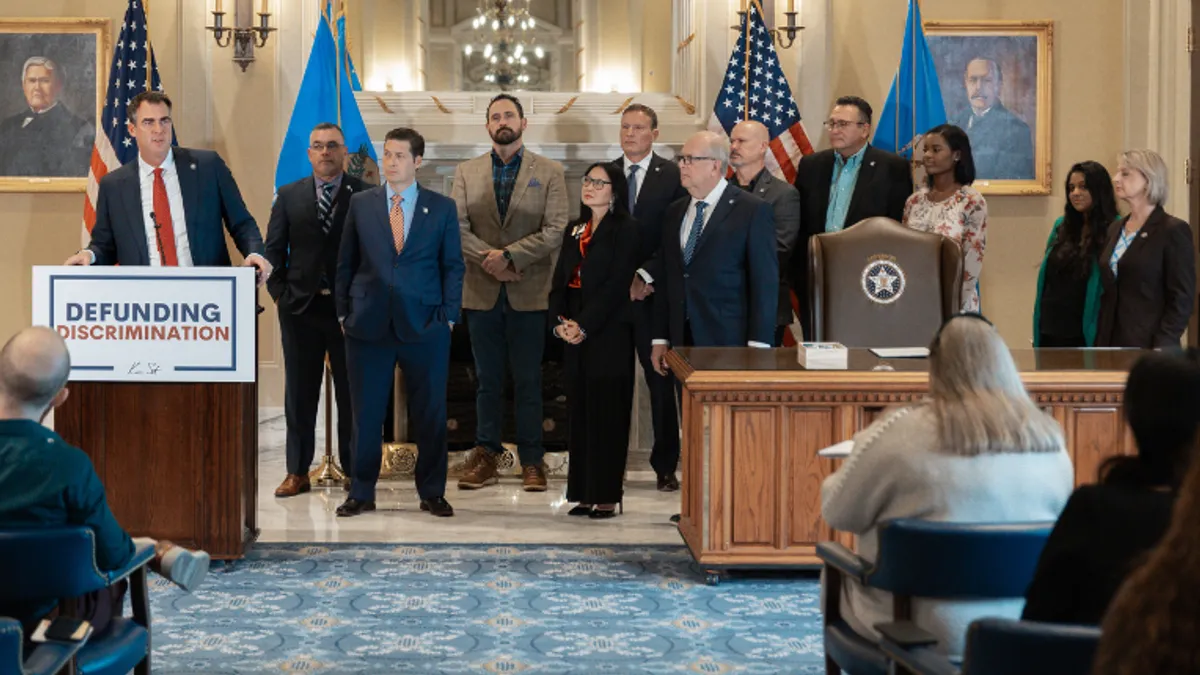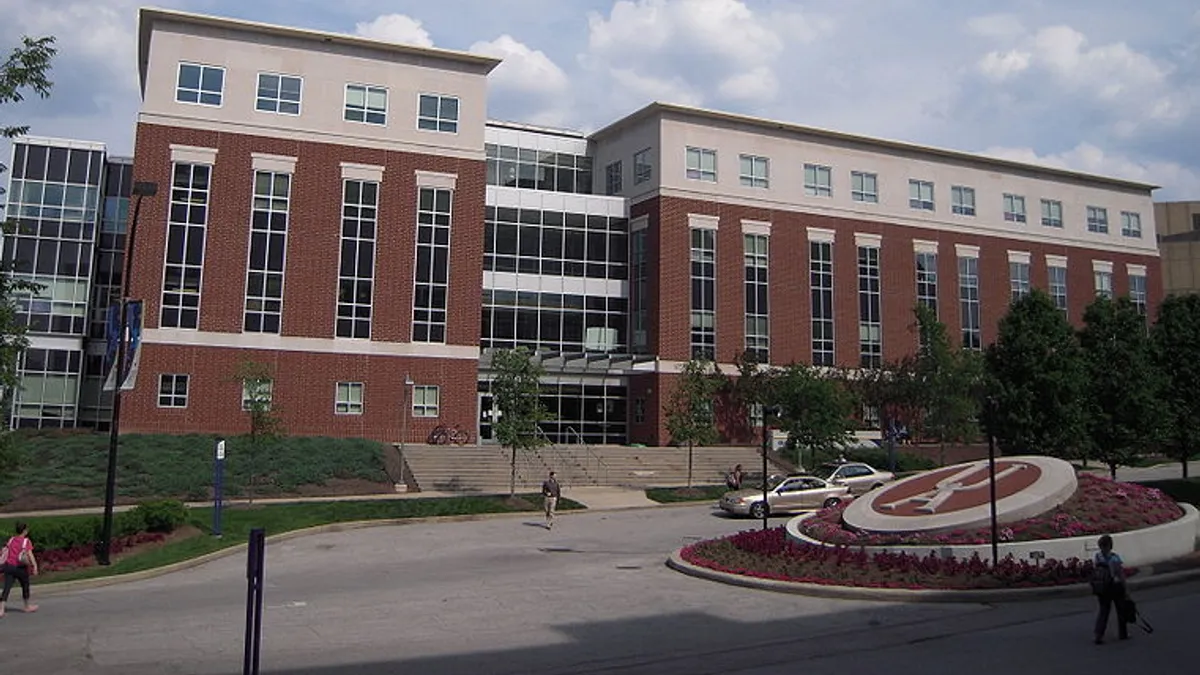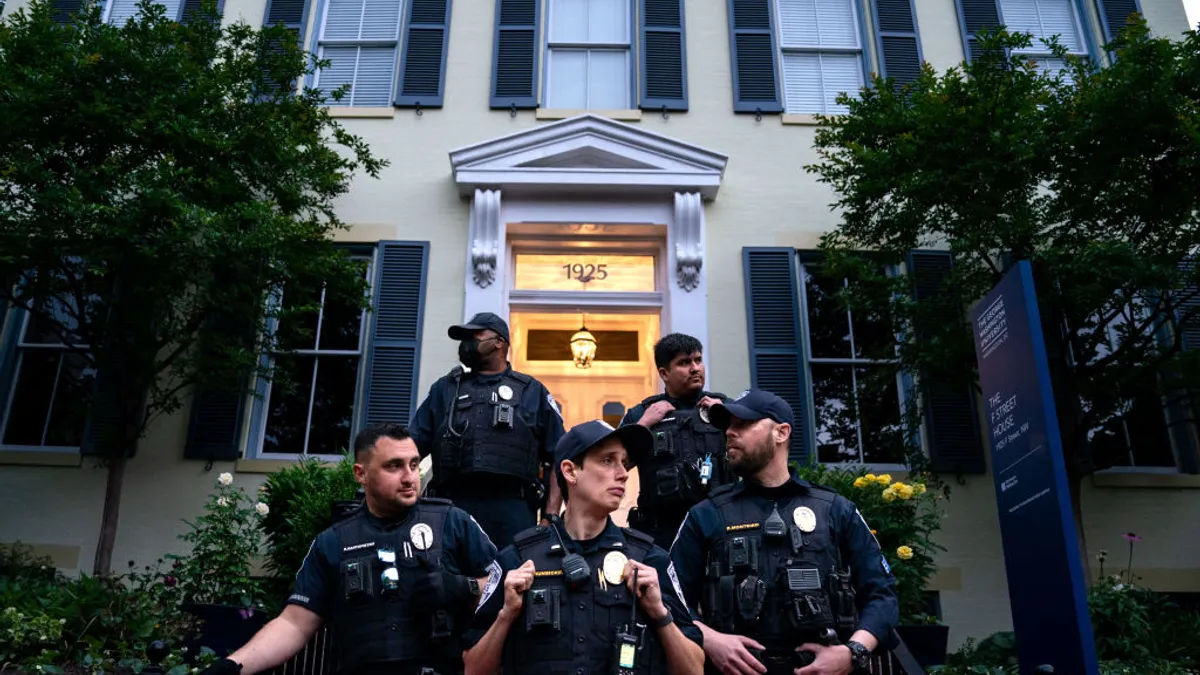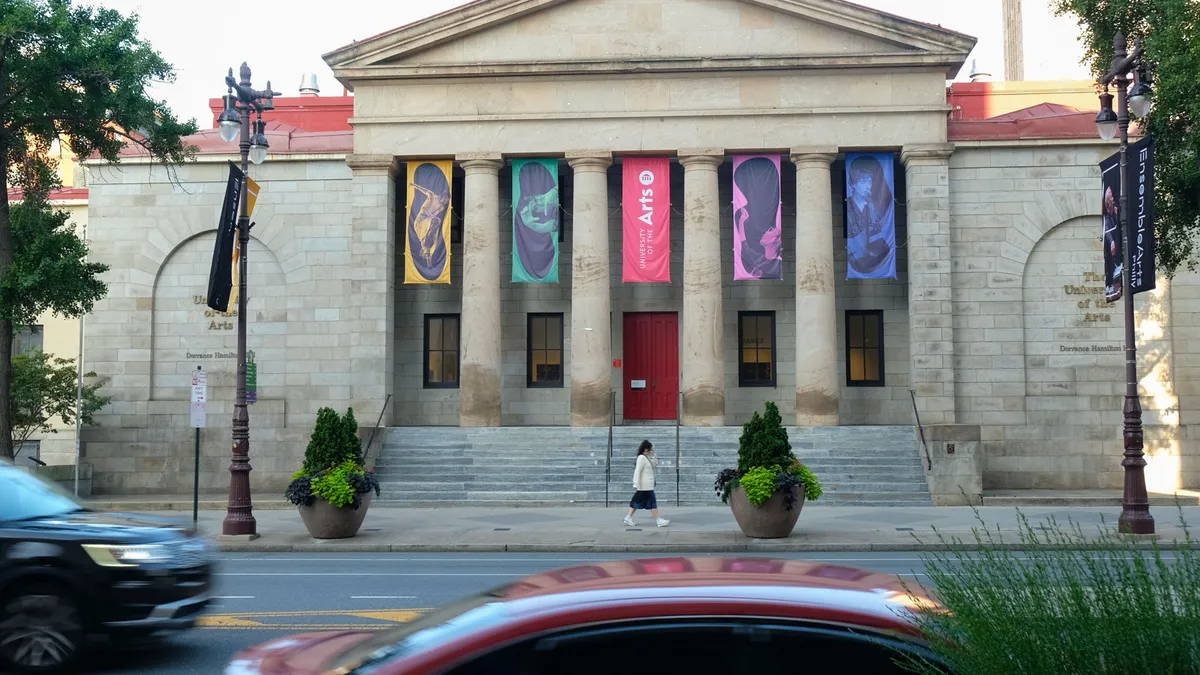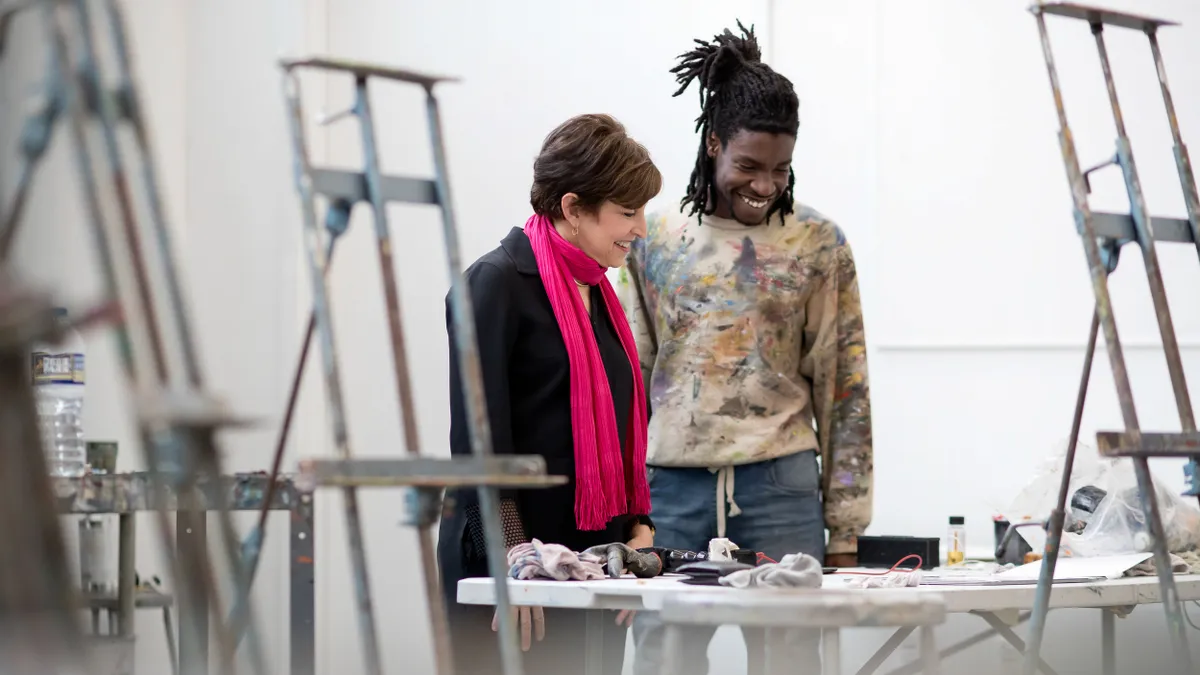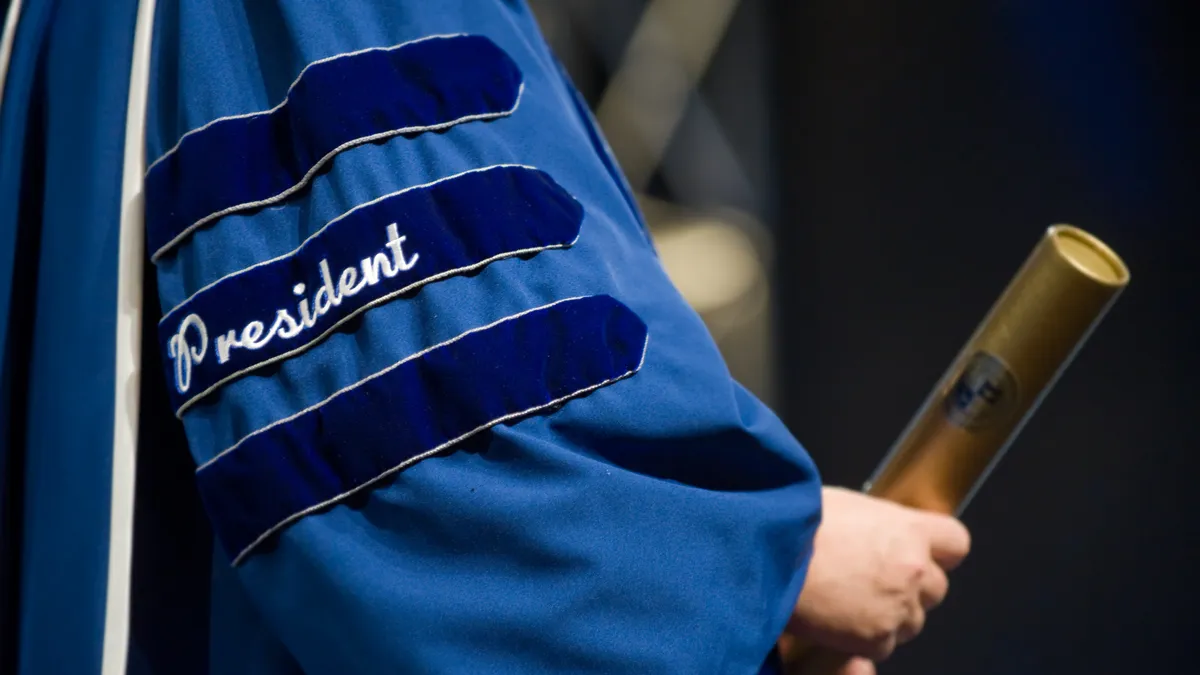Lori White is president of DePauw University, in Indiana.
Confidence in higher ed is slipping, in part because some adults assume colleges do not provide open opportunities for learning and debate. Regardless of whether this perspective is wholly accurate, campuses should rest on freedom of expression and exploration of ideas.
As the president of DePauw University, I am often asked about my contention that a college campus cannot have a climate that fosters freedom of expression without an equal commitment to diversity, equity and inclusion. Without including diverse people and perspectives, expression is potentially one-sided. And without adjustments to power imbalances among individuals and groups, one cannot have equal footing to debate.
One of our highest priorities should be to help students develop tools to debate ideas and ensure all voices — and in particular, voices of those historically underrepresented and marginalized on our campuses — are heard and affirmed.
A foundational experience shaped my perspective.
I spent my formative years in San Francisco. I lived in a working-class neighborhood with kids from every ethnic, cultural and religious group imaginable. I attended classes and participated in after-school activities with them. Bordering my neighborhood were upper-middle-class households, majority African American communities and nearby Catholic schools — and those kids were also part of our extended friendship network. We spent time at one another's houses and were exposed to different foods, activities, and religious and cultural traditions.
I did not realize the uniqueness of my upbringing at the time. Most of the students I have interacted with over my 40 years in higher education come to college from neighborhoods increasingly segregated by race, economics and ideology. Today, more people also choose to live near others with the same ideology. For many undergraduate students, college is the first time they have ever experienced living and studying with people different from those in their childhood neighborhoods.
Not having previous exposure to diversity is why cultivating free expression on campus can be challenging. We ask young people to dialogue across differences that many have never experienced before. Such conversations can feel unsettling and even threatening. They can also be tiresome for students from historically marginalized backgrounds, who may feel they have to continue to educate others about their lived experiences. It is no wonder so many minority students are weary, frustrated and often feel "other than'' on our historically White college campuses. It is also important to recognize there are students whose political ideologies may not match those of the campus majority and who feel their viewpoints are actively discouraged on campus.
To support free expression, we must work toward more diverse, inclusive and equitable college campuses. A residential university like DePauw may be one of the few places where a diverse community can gather to live and learn together.
It is also critically important we focus on helping students and other community members develop the tools to dialogue across their differences.
Orientation this fall will include a session about these tools. And we will incorporate a discussion about freedom of expression as part of faculty orientation so instructors can develop the skills to engage students in challenging conversations.
Students must know that freedom of expression allows a faculty member to research, write about and teach a range of topics, and assign material that might make students uncomfortable. It also protects students' right to fly a Black Lives Matter Flag, wear a MAGA hat in class, establish any student organization, invite speakers to the campus or protest the administration.
My role as president, and one who happens to be African American, is to protect all of these forms of freedom of expression. There are words I would not use and viewpoints I abhor. Other than in narrow legal exceptions, students must understand that disallowing speech because some members of our community take offense opens the door for others to advocate for banning other types of speech. That is a slippery slope.
This view was shaped by my time as an undergraduate at the University of California, Berkeley, the home of the 1960s Free Speech Movement. This movement started because conservative lawmakers wanted to prevent "lefty" students from criticizing the Vietnam War and later expanded to include students speaking out about other critical issues.
In my work with students, I impress upon them how graduates throughout history have used their free expression rights to inspire social change. I tell them some would like nothing more than to inhibit their ability to speak up about what they feel is wrong in society or prevent them from sharing a viewpoint counter to the majority.
These are not easy times to be a strong advocate for freedom of expression. Faculty members across the country are increasingly concerned that teaching certain topics or having certain discussions in class will get them fired. Students are afraid saying the "wrong thing" in class will lead to public embarrassment or denouncement. Standing up for the right of free expression can land presidents in hot water.
However, freedom of expression is not a one-way street. It is too important for all of us not to be all in.


